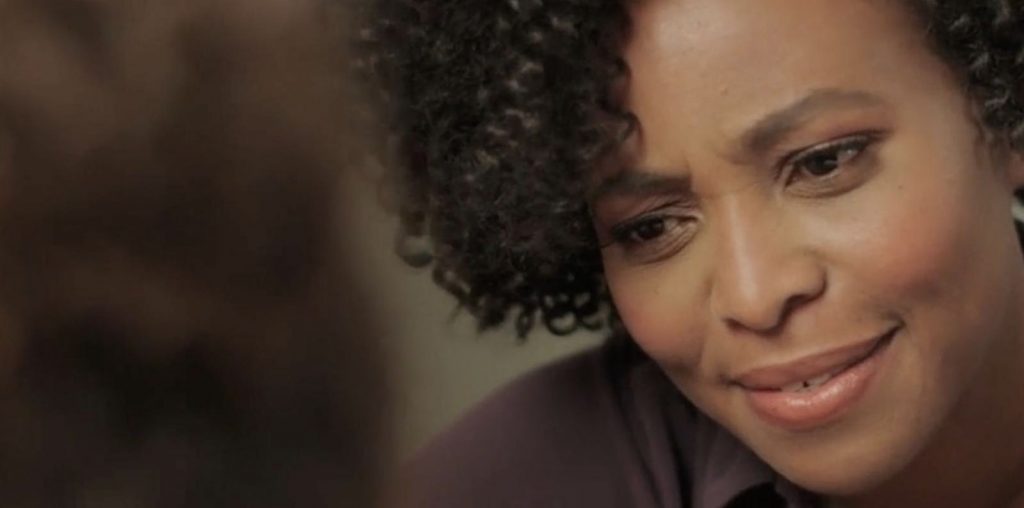
How did the Slamdance audiences react to Standing by Yourself? And what did you get out of attending Slamdance? ^ It seemed to go really well with the Slamdance audience. Actually the second showing was a morning show and the transit shuttle which brings people to the Silvermine went on strike, for some reason that morning. The result was a less crowded house, but that crowd turned out to be even better than the first showing on a Tuesday afternoon. I think a smaller, more intimate crowd works as well for this piece as a full house. As for what I got out of it, I just feel that the whole atmosphere at Slamdance was a refreshing change to some of the other things going on in Park City at the time. I felt there was a lot of strong work, especially the documentaries, and it was just good to be a part of the positive, inspiring crowd. Most importantly though, I feel that I made this piece for these kids. Kids who don’t normally have a voice, and because of Slamdance many people have, and will get a chance to see it in the future.
Your earlier short “W****s Are Expensive” brings the camera into bizarre close-ups. How did you prep your cast for this strange experiment, and how did they react upon seeing themselves in such an unusual manner? ^ This film was a piece I made for the moment. It wasn’t about making a film as much as it was a kind of self therapy. I remember asking the people shot about their memories and personal history. There was a real exchange and I remember some of them telling me some very extreme things. This film is mostly about secrets, memory, and loss. I think people were just happy that I didn’t expose any of the personal issues discussed while we were making the piece.
“Richard Shakes” provides an intensely personal dissection of your brother’s life, in which he opens up on the state of his health and emotional well-being; there’s even an epileptic seizure captured on film. It is not a comfortable film to view…what is an uncomfortable film to create? ^ I think both of these films are very uncomfortable to watch, for different reasons though. These levels of discomfort just sort of happen. There’s nothing really shocking in any of my work, but I believe people feel that same energy because it is so close to home. Whether it reminds us of ourselves, or exposes us to who we are not, these people are real and these moments are genuine. That’s what sometimes makes it uncomfortable for the viewers, sometimes life isn’t a comfortable thing.
Standing by Yourself and “Richard Shakes” brings your family’s world into camera range. Has your family been happy with the results of your work? ^ It really depends. Some moments make them feel uneasy, some they like. It’s really hard to see yourself or your loved ones portrayed in a certain way, no matter how real these ways are. People like to hide their feelings, their fears, and when exposed, it can be really hard to take in. It’s generally accepted though. One of my main goals was not to exploit anyone in any way. These scenes are really my interpretations of what of what was going on, but I’m not trying to make anyone look evil or foolish, I don’t feel that any of them are. Everyone is good and bad, alone yet surrounded by people, and so on. No one is really who they project themselves to be, people are more complex than that. It can be hard to face that reality sometimes.
What projects do you have in the proverbial pipeline? ^ I’m actually remaking my film about my brother Richard. Although I was very happy with it when it was first made, Richard’s life is far more complex and unfortunate than I portrayed. Plus, I love him…he’s my brother and I want to make something for him, give him a voice. I think people can learn a lot from people like him, Josh Siegfried, and the endless amount of others just living and struggling through life.
In your relatively brief time behind the camera, what have you learned to date which would be essential for other filmmakers (both aspiring and seasoned) to consider? ^ Just don’t overlook people and don’t take things for granted. Try to stay true to yourself and your subjects as much as possible. But most importantly don’t be afraid of your project falling into new directions. As you learn more about the subjects, everything will start to change. In order to make a film about someone or something, you need to spend time with them. Inevitably relationships will be built. Every time I’ve ever finished a film I’ve changed in a way; people can have strong impacts on you. This film is not only about kids and the people around them, it’s about me, about our culture, and about everyone living or not living this sort of life. Again, it’s not what I originally intended, but by the end things had completely changed for me.
Josh Koury’s short films can be seen online at Studentfilms.com.
Check out FILMTHREAT.com’s INTERVIEW ARCHIVES and read hundreds of fascinating in-depth interviews with directors, filmmakers, actors and celebrities from the world of film!
